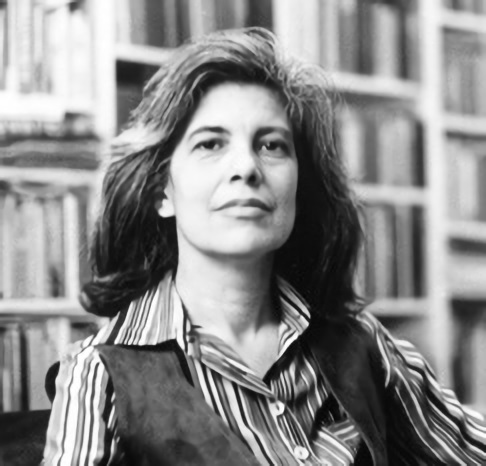Susan Sontag Quotes
“I want to be able to be alone, to find it nourishing - not just a waiting.”
Source: Reborn: Journals and Notebooks, 1947-1963
Source: Reborn: Journals and Notebooks, 1947-1963
Source: On Photography
Source: Reborn: Journals and Notebooks, 1947-1963
Source: Reborn: Journals and Notebooks, 1947-1963
“One can never ask anyone to change a feeling.”
Source: As Consciousness is Harnessed to Flesh: Journals and Notebooks, 1964-1980
Source: The Benefactor (1963), Ch. 1, p. 1, Farrar, Straus and Giroux ISBN 0-312-42012-9
“[O]ne person's 'barbarian' is another person's 'just doing what everybody else is doing.”
Source: Regarding the Pain of Others
“Passion paralyzes good taste.”
Source: Reborn: Journals and Notebooks, 1947-1963
“Being in Love means being willing to ruin yourself for the other person.”
Source: As Consciousness is Harnessed to Flesh: Journals and Notebooks, 1964-1980
Frankfurt Book Fair speech (2003)
Context: To have access to literature, world literature, was to escape the prison of national vanity, of philistinism, of compulsory provincialism, of inane schooling, of imperfect destinies and bad luck. Literature was the passport to enter a larger life; that is, the zone of freedom.
Literature was freedom. Especially in a time in which the values of reading and inwardness are so strenuously challenged, literature is freedom.
Source: Reborn: Journals and Notebooks, 1947-1963
Source: Regarding the Pain of Others
Source: At the Same Time: Essays and Speeches
“Life is not about significant details, illuminated a flash, fixed forever.
Photographs are.”
Source: On Photography
Source: As Consciousness is Harnessed to Flesh: Journals and Notebooks, 1964-1980
Source: As Consciousness is Harnessed to Flesh: Journals and Notebooks, 1964-1980
Source: Reborn: Journals and Notebooks, 1947-1963
Frankfurt Book Fair speech (2003)
Context: We are told we must choose — the old or the new. In fact, we must choose both. What is a life if not a series of negotiations between the old and the new? It seems to me that one should always be seeking to talk oneself out of these stark oppositions.
“Styles change, style doesn't.”
Styles, like everything else, change. Style doesn't. - Linda Ellerbee, Move On: Adventures in the Real World (1991), p. 35 G.P. Putnam's Sons ISBN 0399136231
Misattributed
"Notes on 'Camp'" (1964), note 9, p. 279 http://books.google.com/books?id=e3qgRrVlEH4C&q=%22What+is+most+beautiful+in+virile+men+is+something+feminine+what+is+most+beautiful+in+feminine+women+is+something+masculine%22&pg=PA279#v=onepage; originally published in Partisan Review, Vol. 31 No. 4 http://books.google.com/books?id=qEwqAQAAMAAJ&q=%22What+is+most+beautiful+in+virile+men+is+something+feminine+what+is+most+beautiful+in+feminine+women+is+something+masculine%22&pg=PA519#v=onepage, ( Fall 1964 http://www.bu.edu/partisanreview/books/PR1964V31N4/HTML/#519/z)
Against Interpretation and Other Essays (1966)
“It is not suffering as such that is most deeply feared but suffering that degrades.”
AIDS and Its Metaphors, (1989), ch. 4, p. 125, Farrar, Straus and Giroux ISBN 0-312-42013-7
AIDS and Its Metaphors was later published in combination with Illness As Metaphor. This combined edition is the one referenced here.
Regarding the Torture of Others (2004)
Regarding the Torture of Others (2004)
